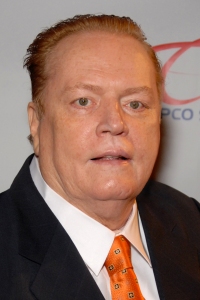
A New York state judge Tuesday tossed a libel suit filed by Donald Trump’s campaign against The New York Times. The suit claimed that a 2019 column by former executive editor Max Frankel was false and defamatory because Frankel wrote that the 2016 Trump campaign had colluded with Russian interests.
Two-thirds of Judge James d’Auguste’s ruling is not especially interesting. He ruled that the campaign lacked standing to bring such a suit, and that Trump would be unable to prove Frankel knew or strongly suspected that what he was writing was false — the “actual malice” standard that pertains to public officials and public figures.
So that leaves us with the third leg of d’Auguste’s decision — that Frankel was merely expressing his opinion, which is protected by the First Amendment. The standard was set in a U.S. Supreme Court case called Milkovich v. Lorain Journal Co., in which Chief Justice William Rehnquist ruled that labeling a piece of writing as “opinion” provides no protection if that piece contains assertions of fact that could be proven true or false.
The way Rehnquist explains it is that to say “In my opinion Mayor Jones is a liar” would be unprotected speech (that is, if Jones could prove he’s not a liar, he might be able to bring a successful libel suit) whereas “In my opinion Mayor Jones shows his abysmal ignorance by accepting the teachings of Marx and Lenin” would be considered pure opinion and thus beyond the reach of a libel suit.
Become a member of Media Nation today.
So what did Max Frankel do? If you read his commentary, you’ll see he looked at a number of public actions and statements by Trump and people close to him to show that they were toadying to Russian interests, and that not only did the Russians expect something in return, but that Trump and his allies moved in that direction both during and after the 2016 election. We all know this. We all watched it unfold in real time. (It’s important to note in this context that “collusion” is not a legal term anymore than “toadying” is. In other words, labeling such behavior as “collusion” is protected opinion as long as the underlying facts are accurately stated.)
Among other things, Frankel cites the infamous Trump Tower meeting as well as incoming national security adviser Michael Flynn’s lying to the FBI about his discussion with the Russian ambassador before the 2017 inauguration about the possible lifting of sanctions. Those actions led to criminal charges against Flynn, to which he pleaded guilty twice before Trump, as president, pardoned him in the final days of his administration. Frankel writes:
Candidate Trump made no secret of his intention to forge a warm relationship with the Kremlin. But pledges of sanctions relief and other specific moves while not yet in office were unseemly at best and clearly offensive to the American convention that we have only one president at a time. Mr. Flynn especially had to lie because though already in transition to power he was directly undermining Mr. Obama’s still active and punitive diplomacy against Mr. Putin.
Frankel didn’t libel Trump, not just because of the technicalities of defamation law, but because he wrote the truth. Trump might as well sue Robert Mueller while he’s at it.

